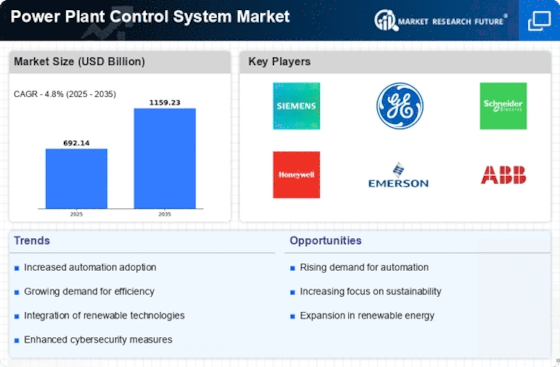Market Share
Power Plant Control System Market Share Analysis
The Power Plant Control System Market is a dynamic and competitive industry where companies employ various strategies to secure their market share. One common approach is differentiation, where companies focus on offering unique features or technologies that set them apart from competitors. By providing innovative solutions, such as advanced monitoring and control capabilities, companies can attract customers looking for cutting-edge technologies to optimize their power plants' performance.
Another key strategy is cost leadership, where companies aim to become the low-cost provider in the market. This involves streamlining operations, optimizing production processes, and negotiating favorable supplier agreements to reduce overall costs. By offering competitive prices, companies can appeal to cost-conscious customers and gain a significant market share, especially in regions where pricing plays a crucial role in decision-making.
Market segmentation is also a widely employed strategy in the Power Plant Control System Market. Companies analyze the diverse needs of different customer segments and tailor their products and marketing approaches accordingly. This allows them to address specific requirements of various industries, such as utilities, manufacturing, and renewable energy, and position themselves as specialists in those niches. Customizing solutions for specific market segments enhances customer satisfaction and loyalty, ultimately contributing to a stronger market position.
Strategic partnerships and collaborations are becoming increasingly prevalent in the power plant control system industry. Companies often form alliances with other technology providers, utility companies, or research institutions to leverage complementary strengths and broaden their market reach. Collaborations can lead to the development of integrated solutions that offer comprehensive control and monitoring capabilities, attracting customers seeking all-in-one solutions for their power plants.
Geographical expansion is another pivotal strategy in the Power Plant Control System Market. Companies may target emerging markets or regions with growing energy demands, establishing a presence and building relationships with local customers. Understanding and adapting to regional regulatory requirements and cultural nuances is essential for success in new markets. By strategically expanding their geographic footprint, companies can tap into new customer bases and diversify their revenue streams.
Continuous innovation is crucial for maintaining a competitive edge in the rapidly evolving power plant control system industry. Companies invest in research and development to stay ahead of technological advancements, ensuring their products meet the changing needs of the market. Regular updates and improvements to existing systems showcase a commitment to innovation, attracting customers looking for solutions that can adapt to future challenges.
Customer service and support play a pivotal role in market share positioning strategies. Offering excellent after-sales service, technical support, and training programs can enhance customer satisfaction and loyalty. Satisfied customers are more likely to become advocates for the brand, contributing to positive word-of-mouth marketing and repeat business. Superior customer service can be a key differentiator in a market where reliability and responsiveness are critical factors for success.
The Power Plant Control System Market is highly competitive, and companies adopt various strategies to secure and expand their market share. Differentiation, cost leadership, market segmentation, strategic partnerships, geographical expansion, continuous innovation, and excellent customer service are all essential components of successful market share positioning strategies in this dynamic industry. Companies that effectively combine these strategies are better positioned to thrive in a market characterized by rapid technological advancements and evolving customer needs.



















Leave a Comment